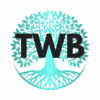I come from a background of working in the hospitality industry. Being a “people(ly)” person, this was a dynamic environment for me to be in. However, I quickly realized that I needed to be “ON” all of the time. I was the first and last impression of the establishment that I worked for, so obviously having a bad day needed to be hidden.
Any hospitality workers out there reading this? I’m sure you can agree that standing is a lot harder than walking around all day. I have waitressed, bartended, event planned, been a guest service agent, guest service manager and have experienced both walking all day and standing all day. Standing is much harder on the body than walking around. Regardless, both made my feet hurt.
Along with the walking and the standing, comes an enormous amount of brain power. And I’m sure people with high stress jobs, can also relate to how incredible thinking and processing, researching and problem solving can be equally exhausting as waitressing all day. And just because our shift stops, it doesn’t necessarily mean that the walking, standing, and thinking stops too. We go home, we have to prepare dinner and shift gears into family time which can also be a little energy draining at times. A different type of depletion.
Do you see how we can easily fall into the workaholic loop? Our brains do not get a break.
Resiliency is not necessarily taught through adolescence. It’s something we quickly learn to cope with even without having a balanced skill set to tackle the responsibilities that we now face as adults. Here’s a secret: a resilient child is a well rested one. A resilient adult is a well rested one. The chance of error increases when you “think” you are being over productive. When you have just one more task to complete or when you stay up too late to finish a project. What is actually happening is that your brain is not being permitted to power down. Overwork and exhaustion are the opposite of resilience. And these bad habits can follow you throughout your adulthood and into your career.
We sacrifice sleep in the name of productivity, but ironically our loss of sleep, despite the extra hours we spend at work, adds up to 11 days of lost productivity per year per worker, or about $2,280
Arianna Huffington
When I work one on one with clients my goal is to help their bodies find their feel and heal mojo. I explain that the body is always trying to bring itself back into a homeostasis state. In other words, your body wants to be back in balance for it’s optimal well-being. When the body is out of alignment from overworking, you waste so much energy mentally, emotionally and physically trying to return to balance.
If you are an over achiever, an over performer, a perfectionist or spend too much time being “ON” you risk burnout. So, how do you recover and recharge your way to resilience? Most people assume that if you stop a task your brain will have a break and new found energy will automatically generate so that you can tackle that paper, email, or project a little later in the day. Or have you tried leaving your task for the day only to return the following day with no new energy? Surely you have had times where you lie in bed unable to sleep because your brain is still thinking about your to do list. If you lie in bed for eight hours, you may have rested, but you can still feel exhausted the next day. Rest and recovery are not the same thing. Stopping does not equal recovery.
If you’re trying to build resiliency at work then you’ll need internal and external recovery periods. Internal recovery refers to shorter periods of relaxation that take place during the work day. Schedule in mini breaks or shift your attention to a different work task throughout the day. Personally, I know that I only have about a two hour time frame of zoned in focus when I’m working on the computer. After that my brain feels like mush. The benefit I have from working from home is that I can do a few mindless house chores. Cleaning is like meditation to me, so while my body is doing the routine work, my brain does not have to think about what needs to be done. Once I’ve done a few physical chores at home, I can then come back to the computer and re dedicate to my “in the zone” state.
Finding a “chore” or a different type of mental power throughout your day will help to allow your brain and body an internal recovery period. External recovery refers to actions that take place outside of work. The free time in between your work hours – if during your off time you lay on your bed trying to relax and read the latest notice on your phone about the pandemic and what the government is mandating today, your brain is not actually having recovery time. If you stress about upcoming family events or bills that need to be paid, your brain is staying in a high mental state. Your brain needs rest just as your body does.
If you need to build your resiliency, recharge your way there. Take a break every 90 minutes or so – get up, walk around or turn your focus to something else. Eat lunch outside, not at your desk. Stay off your phone. Plan recovery time during your “OFF” time and enjoy watching TV, movies, sleep, journal, or listen to podcasts. Give yourself permission and then plan it into your day to allow your brain and your body the mental and physical recovery it needs (and watch your productivity increase instead deplete).
Read More: How to Tell if you are Burned out or just Unmotivated or Living a Balanced Life

